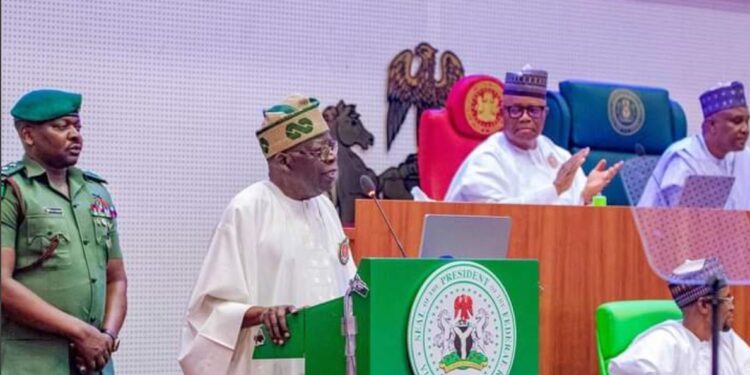Initially scheduled for Tuesday, the budget presentation was postponed to allow the executive arm to finalize necessary adjustments. The revised timeline was confirmed by a top National Assembly official and corroborated by the Minister of State for Agriculture, Sabi Abdullahi, who explained, “The executive just needs to make one or two adjustments to the budget.”
The proposed budget follows the Senate’s recent approval of the Medium-Term Expenditure Framework (MTEF) for 2025–2027, which sets key fiscal parameters. For 2025, the MTEF outlines an oil price benchmark of $75 per barrel, a crude oil production target of 2.06 million barrels per day, an exchange rate of N1,400 to the US dollar, and a projected GDP growth rate of 4.6%.
Minister of Budget and Economic Planning, Abubakar Bagudu, highlighted key budget details after Monday’s FEC meeting at the Aso Rock Villa. According to Bagudu:
- Total projected revenue: N34.82tn
- Total expenditure: N47.96tn (a 36.8% increase from 2024)
- Budget deficit: N13.13tn (3.89% of GDP)
Bagudu assured that despite the late budget presentation, the government remains committed to maintaining the January-December budget cycle. “The process will be seamless since the MTEF, which clarifies budget size and assumptions, has been approved by the National Assembly,” he added.
The minister further expressed confidence in achieving the oil production target, citing new findings in Kolmani and Nasarawa State. He also lauded the government’s robust performance on non-oil revenue, driven by reforms such as the deregulation of the petroleum sector.
President Tinubu is expected to call on lawmakers to diligently scrutinize the budget proposal while urging collaboration between the executive and legislative branches to ensure swift approval and implementation.
The presentation will mark the next step in advancing the administration’s fiscal agenda for 2025, with significant focus on revenue generation, capital expenditure, and economic growth.
























